Latest DePIN AI News
View AI Projects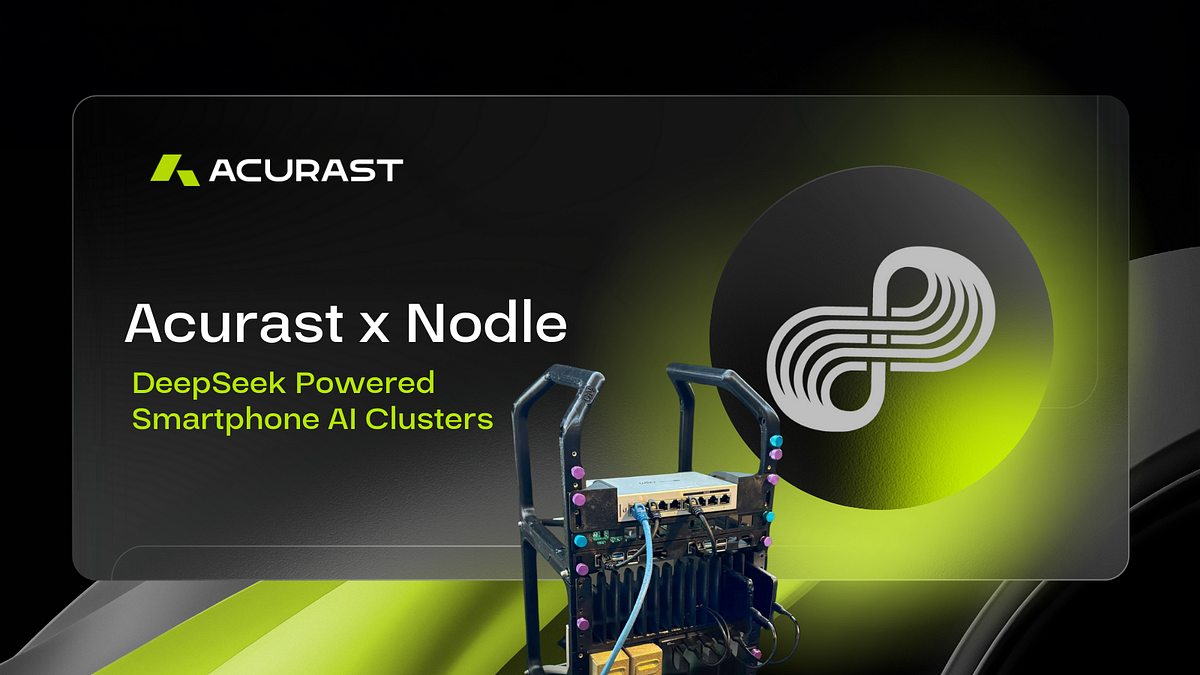
9 months ago
Acurast Integrates with Open Node Project to Enable Decentralized AI Clusters
Acurast has announced an exciting integration with the Open Node Project (ON), a collaborative open-source initiative developed alongside Nodle. This project aims to empower individuals to create decentralized AI clusters using repurposed smartphones, significantly enhancing self-sovereign computing and decentralized infrastructure (DePIN). By transforming old smartphones into AI compute nodes, Acurast leverages ARM processors and Trusted Execution Environments (TEE) to allow developers to efficiently deploy large language models (LLMs) such as DeepSeek AI.
The deployment process for an Acurast AI cluster is straightforward. Users need to gather smartphones equipped with ARM processors and TEE, connect them to power sources, USB hubs, and networks, and install the Acurast app from GitHub. After enabling USB debugging and registering each device, developers can deploy AI models and monitor their performance through the Acurast Dashboard. This innovative approach not only democratizes access to AI computing but also fosters a truly decentralized and scalable compute network powered by smartphones.
The significance of this integration lies in its potential to provide cost-effective AI solutions while eliminating reliance on centralized servers, thus promoting digital sovereignty. Acurast is at the forefront of decentralized computing, ensuring that both developers and users can leverage the power of mobile-driven AI clusters. With smartphones being the most trusted devices globally, Acurast is redefining decentralized compute, making it more accessible and secure than ever before.
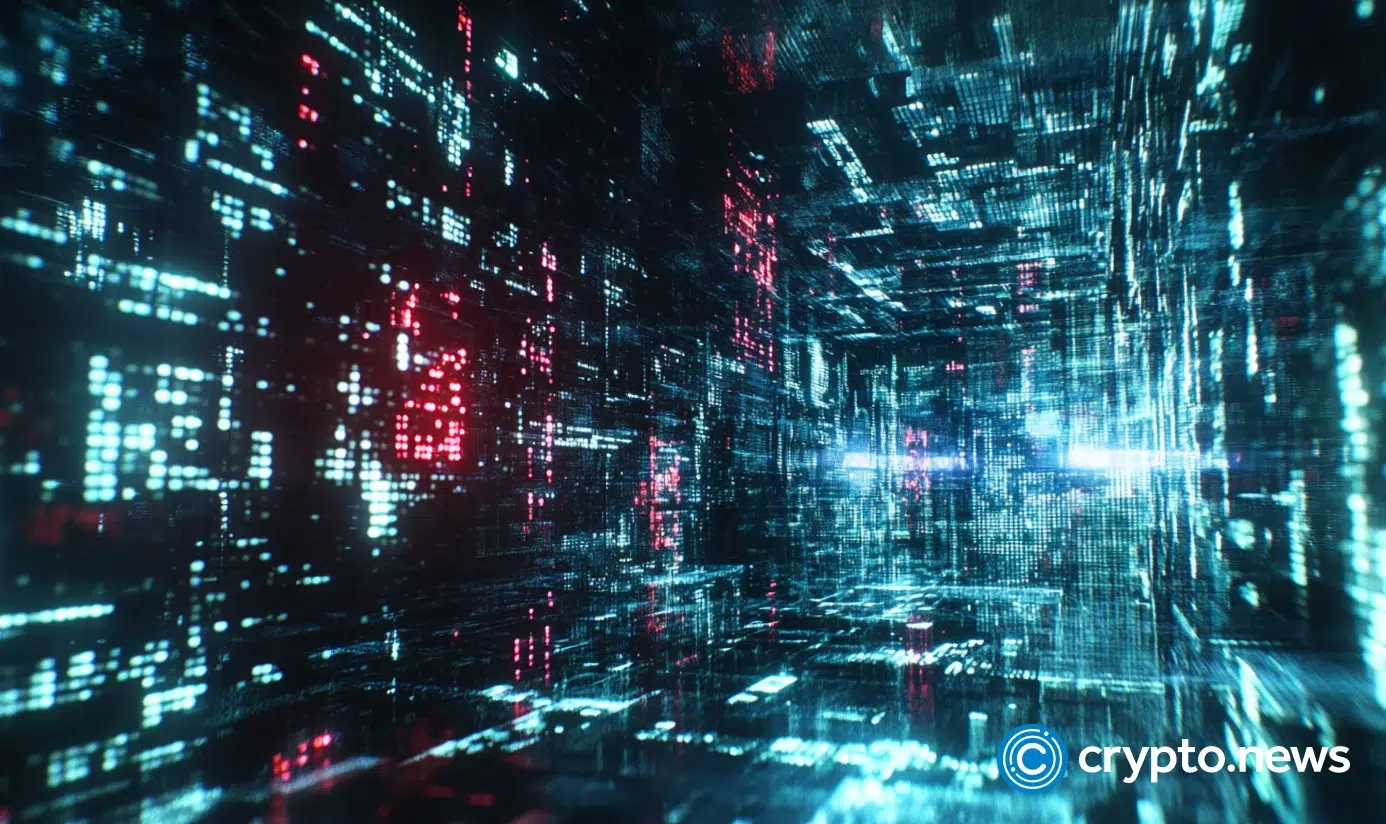
9 months ago
Zuvu AI and Vana Partner to Enhance Decentralized AI in Bittensor
On February 26, Zuvu AI and Vana announced a strategic partnership aimed at enhancing decentralized artificial intelligence within the Bittensor ecosystem. This collaboration seeks to create a more open and financially sustainable AI environment by integrating various layers of the decentralized AI stack. Zuvu AI, formerly known as SocialTensor, brings valuable experience from scaling four Bittensor (TAO) subnets, while Vana contributes its innovative user-owned data network, recently advised by Binance founder Changpeng Zhao. Together, they aim to test a new model of AI development that emphasizes collaboration and sustainability.
Art Abal, Managing Director at Vana Foundation, highlighted that the partnership effectively integrates Vana’s data layer, Bittensor’s subnet network, and Zuvu’s economic layer to enhance Vana’s DataDAO ecosystem. This integration addresses significant challenges in AI development by allowing models, agents, and data to be invested in, staked, traded, and monetized. With the AI market projected to reach trillions by 2032, this collaboration positions itself to create new opportunities in a rapidly expanding market, as Zuvu powers the AI economy layer.
The partnership's strategic integration into Bittensor leverages its incentive-driven network to scale AI development effectively. By merging user-owned data with permissionless computing and economic incentives, this collaboration reflects the disruptive nature of decentralized finance (DeFi) in traditional finance. The partnership is expected to enhance the diversity of Bittensor’s subnets, support the expansion of Vana’s DataDAO, and establish Zuvu as a leader in AI financialization, potentially influencing industry practices. This initiative aligns with the growing trend toward open-source artificial intelligence and responds to the demand for alternatives to centralized AI giants.

9 months ago
PowerPod Revolutionizes EV Charging with AI Technology
As the electric vehicle (EV) market continues to expand, optimizing charging infrastructure has become crucial to meet user demands while minimizing costs and grid stress. Traditional charging methods often lead to peak load issues and price fluctuations, making it essential to implement innovative solutions. PowerPod aims to tackle these challenges through AI-powered charging stations that intelligently adjust based on real-time data, including power grid conditions, electricity prices, and user preferences. This approach not only enhances efficiency but also provides a cost-effective solution for both users and energy providers.
The AI model developed by PowerPod incorporates various data inputs to optimize charging strategies. It analyzes charging station data, grid load levels, user behavior, and environmental factors such as weather conditions. By utilizing Long Short-Term Memory (LSTM) neural networks, the model predicts future energy demand, allowing charging stations to schedule EV charging during the most cost-effective and grid-friendly times. Additionally, Deep Reinforcement Learning (DQN) is employed to dynamically adjust charging rates based on real-time conditions, ensuring that users receive the most efficient charging experience while minimizing costs.
PowerPod's AI-driven smart charging system architecture consists of data collection, AI processing, execution, and continuous learning. This innovative approach has been tested in a citywide EV network, yielding promising results. Looking ahead, PowerPod plans to integrate blockchain technology for secure billing, offer personalized charging modes, and collaborate with autonomous driving technologies to create self-operating charging stations. These advancements signify a transformative shift in the EV charging landscape, paving the way for a more sustainable future in the decentralized Web3 ecosystem.

9 months ago
The Rise of AI in Cryptocurrency: Spotlight on JetBolt and Other Innovators
The integration of artificial intelligence (AI) into the cryptocurrency market has gained significant momentum, particularly with the emergence of large language models like ChatGPT and Google Gemini. By 2025, a diverse array of projects, including established names and rising stars such as JetBolt, Near Protocol, The Graph, Arweave, and Virtuals Protocol, have carved out a niche in the AI crypto space. Among these, JetBolt (JBOLT) has made headlines with its impressive token sales, having sold nearly 330 million JBOLT tokens. This innovative altcoin offers a gas-less infrastructure and an AI-driven crypto news aggregator, effectively addressing some of the long-standing challenges faced by blockchain technology.
JetBolt's unique approach to solving high gas fees and slow transaction speeds is through its Zero-Gas Technology, which utilizes the Skale Network for seamless on-chain interactions. This technology not only eliminates gas fees but also ensures near-instant finality for transactions, making them irreversible upon processing. Additionally, JetBolt features an AI-powered aggregation platform that curates crypto news and Web3 content, categorized by market sentiment. The platform also promotes user engagement through its Proof of Attendance and Worth (PAW) protocol, allowing users to earn staking rewards while participating in the ecosystem.
Other notable projects in the AI crypto landscape include Near Protocol, which enhances scalability through “nightshade” sharding, and The Graph, which simplifies blockchain data access for developers. Arweave focuses on permanent data storage, while Virtuals Protocol enables the management of digital assets like NFTs. As the AI and blockchain sectors continue to evolve, JetBolt and its peers are poised to lead the charge, appealing to a growing community of crypto enthusiasts eager for innovative solutions in the digital asset space.

10 months ago
Digital Entertainment City Namba: A Fusion of AI and XR in Osaka
Digital Entertainment City Namba is an innovative extended reality (XR) project located in Osaka, Japan, which integrates artificial intelligence (AI) guides throughout the city. This initiative is powered by Mawari's decentralized physical infrastructure network (DePIN), showcasing how DePINs can effectively meet the computational demands of both XR and AI technologies. The collaboration involves key players such as Mawari, Meta Osaka, Nankai Electric Railway, and the Namba e-stadium, highlighting Osaka's rich cultural and technological heritage while pushing the boundaries of immersive experiences.
The project aims to enhance tourist experiences by utilizing virtual AI guides capable of performing various tasks, from providing guidance to offering customer service. These AI-driven characters are designed to facilitate intuitive interactions that transcend language barriers, making tourism more accessible. The integration of AI within XR experiences presents unique challenges, particularly due to the significant computational power required for graphics rendering and AI processing. DePINs, like those offered by Mawari, promise to alleviate these challenges by leveraging decentralized GPU networks to reduce latency and bandwidth demands.
As the demand for AI processing grows, the transition from graphical rendering to AI capabilities is becoming increasingly common among GPU DePINs. Notably, Render Network has successfully pivoted to include AI processing alongside its original focus on graphics. The Digital Entertainment City Namba project exemplifies this trend, illustrating the potential for decentralized GPU networks to support the convergence of XR and AI technologies. Furthermore, under Japanese law, DePIN tokens are classified as utility tokens, which helps to navigate regulatory challenges while fostering innovation in the sector.
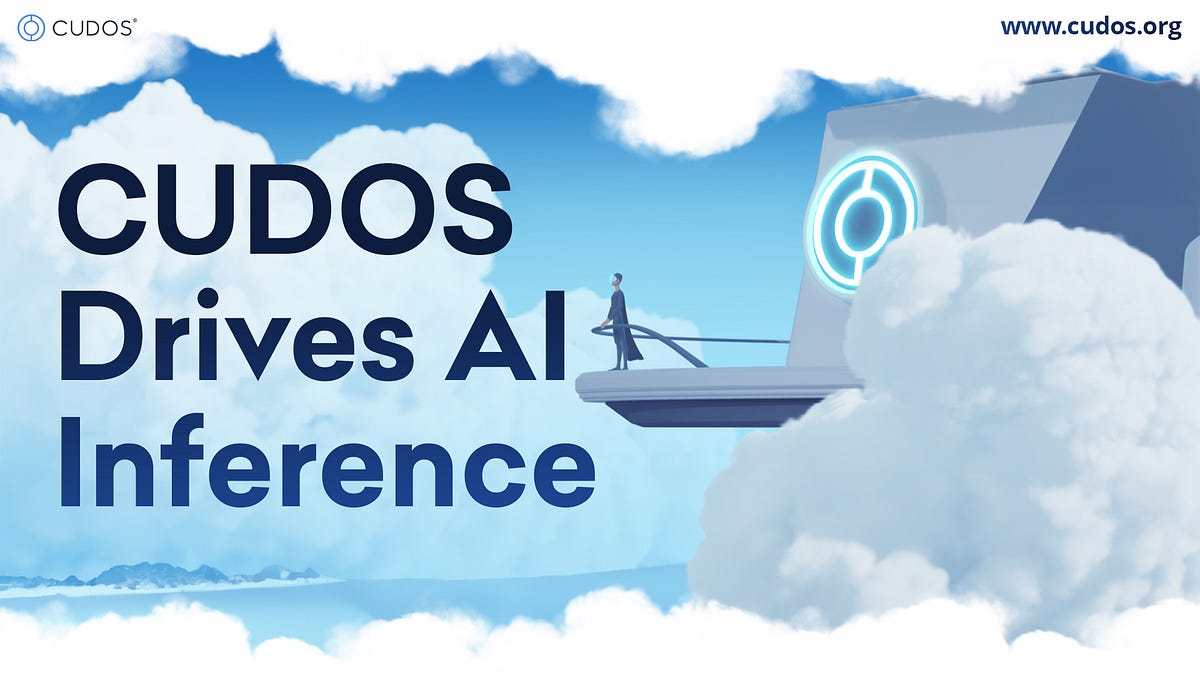
10 months ago
The Decentralization of AI Computing: A New Era of Demand and Efficiency
The AI industry is currently experiencing a pivotal moment characterized by the emergence of smaller and more efficient models, such as DeepSeek. Contrary to expectations, these advancements do not diminish the demand for computing resources; instead, they amplify it, aligning with Jevons’ Paradox, which suggests that increased efficiency can lead to greater overall consumption. As AI models become cheaper, faster, and more accessible, the demand for computing power continues to rise, raising critical questions about how to support widespread AI inference without creating new bottlenecks in the existing infrastructure.
Historically, AI has depended on large-scale centralized infrastructure controlled by hyperscalers, which has led to concerns about accessibility, pricing, and availability. However, the introduction of models like DeepSeek challenges this paradigm by demonstrating that efficiency gains can create new pressures on computing resources. As more individuals and organizations adopt AI technologies, the total compute demand is skyrocketing, particularly as open-source alternatives gain traction. This shift is evident in the rapid development of free and open-source models that outperform proprietary options, allowing startups and independent developers to participate in the AI landscape without the constraints imposed by traditional cloud providers.
As the demand for scalable and cost-effective AI infrastructure increases, decentralized computing is emerging as a viable solution. By distributing workloads across a global network of high-performance GPUs, this model addresses many inefficiencies associated with centralized systems. Decentralization not only enhances cost efficiency and scalability but also provides greater privacy and control over data. The success of models like DeepSeek illustrates the need for a shift toward distributed AI computing, where developers and researchers can operate independently of monopolized cloud infrastructure. The future of AI computing is not about reducing demand but adapting to an ever-growing need for computational power, ensuring that the AI ecosystem evolves in tandem with its advancements.

10 months ago
Mawari Launches Digital Entertainment City Namba: A Smart City Revolution
In a groundbreaking collaboration, Mawari has joined forces with Nankai Electric Railway Co., Ltd., Meta Osaka Co., Ltd., and e-stadium Co., Ltd. to launch the "Digital Entertainment City Namba" in Osaka, Japan. This innovative project aims to create the world’s first smart city that integrates artificial intelligence (AI), extended reality (XR), and decentralized physical infrastructure networks (DePIN) on a city-wide scale. By leveraging the unique strengths of each partner, the initiative seeks to blend advanced technology with everyday urban life, fostering a vibrant digital culture and addressing social challenges through community engagement.
Mawari's pivotal role involves deploying edge computing and rendering devices across Nankai’s properties to establish a decentralized streaming infrastructure. This setup enhances user experience by minimizing latency and enabling real-time interactions with lifelike AI avatars. These avatars are designed to assist in various tasks, such as guiding tourists and facilitating communication across language barriers. The project is a significant milestone for Mawari, as it aims to democratize AI-driven immersive experiences, with CEO Luis Oscar Ramirez emphasizing its potential for mass adoption and tangible social impact.
The projected impact of the Digital Entertainment City Namba extends beyond entertainment, targeting sectors such as tourism and labor. By providing multilingual 3D guides and immersive cultural experiences, the project aims to attract more foreign visitors to Japan, thereby boosting local businesses. Additionally, it addresses Japan's labor shortage by creating flexible, remote work opportunities through AI-driven avatars, promoting inclusivity for diverse groups. This initiative not only enhances accessibility but also aligns with Japan’s pressing need for innovative workforce solutions, marking a transformative step towards a digitally integrated urban future.

10 months ago
AI-Focused Altcoins Surge After Coinbase Listing
A recent surge in the cryptocurrency market has been observed following the listing of several altcoins on Coinbase, a prominent US-based crypto exchange. Among these, Pyth Network (PYTH), Kaito (KAITO), and Bittensor (TAO) have experienced significant price increases. Kaito, an innovative "InfoAI" protocol designed to address fragmentation in the digital assets sector, saw its price nearly double, trading at $1.92 after a remarkable 99.89% rise within 24 hours. This surge was bolstered by its simultaneous listing on both Coinbase and Binance, the latter being the largest global crypto exchange by trading volume.
Bittensor, a decentralized machine-learning network that facilitates the creation and exchange of AI learning models, also benefited from the Coinbase listing. The price of TAO jumped from a low of $445 to a peak of $484, marking an 8.7% increase shortly after the listing. However, the price has since stabilized, currently trading at $453. This fluctuation highlights the volatility often associated with newly listed cryptocurrencies, particularly those tied to emerging technologies like AI.
Pyth Network, a decentralized oracle provider, also saw a notable price increase after its listing on Coinbase. The asset's price rose from $0.235 to $0.263, reflecting a 12% gain before retracing to $0.243 at the time of writing. These developments underscore the growing interest in AI-focused projects and decentralized technologies within the crypto space, as investors seek to capitalize on innovative solutions that address current market challenges.
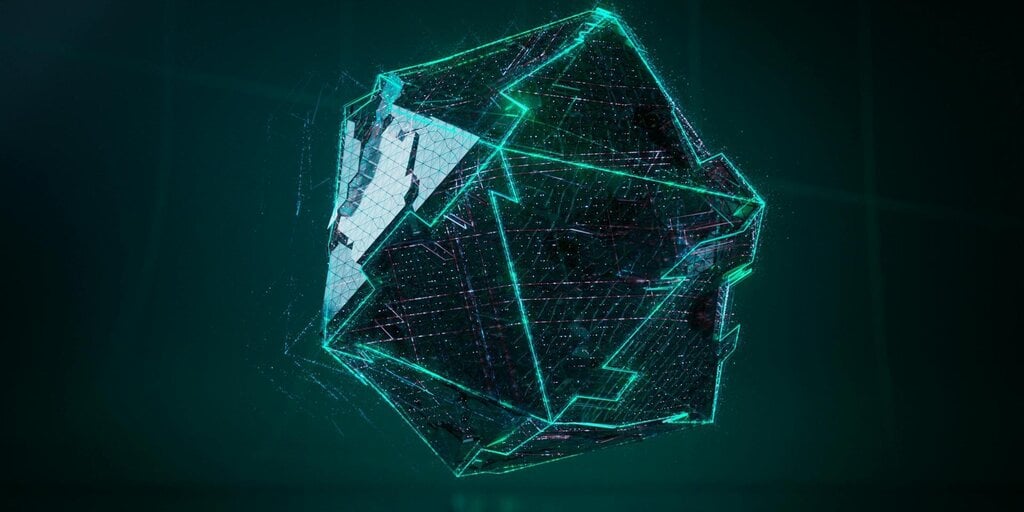
10 months ago
Phoenix Partners with TandemAI to Revolutionize AI Drug Discovery
On February 20th, 2025, in Shanghai, China, Phoenix, a decentralized AI compute network, announced a strategic partnership with TandemAI, a leading firm in AI drug discovery technology. This collaboration aims to deploy TandemAI's advanced AI drug discovery platform, TandemViz, on Phoenix's SkyNet AI compute layer. The integration will facilitate a custom lightweight version of TandemViz to operate on SkyNet's AI node network, allowing research organizations, laboratories, and pharmaceutical companies to access the system at no initial cost, with the potential for significantly reduced operational expenses as they scale their usage.
The significance of this partnership extends beyond mere technological integration; it represents a transformative shift in the accessibility of AI solutions in drug discovery. Previously, such high-cost and computationally intensive solutions were predominantly available to large corporations. However, this collaboration aims to democratize access, making it feasible for smaller entities, including individual researchers and labs, to leverage these advanced tools. This development is particularly relevant to the decentralized science (DeSci) sector, as it introduces industry-specific AI research tools that can enhance the value proposition of DeSci initiatives, potentially leading to the establishment of decentralized autonomous organizations (DAOs) that provide funding for targeted research causes.
TandemAI, founded by industry veteran Lanny Sun, has rapidly grown to employ over 350 professionals, including more than 50 award-winning AI and computational chemists. The firm boasts a client base of over 80 large pharmaceutical companies worldwide. Meanwhile, Phoenix's SkyNet Compute Layer is designed for scalability and efficiency, supporting a diverse range of applications within its AI ecosystem, which includes over 130 applications focused on AI for trading, gaming, and DeSci. This partnership is poised to accelerate innovation in the AI drug discovery space, backed by the $20 million Phoenix AI Ecosystem Fund, launched by JDI Group and Tensor Ventures.
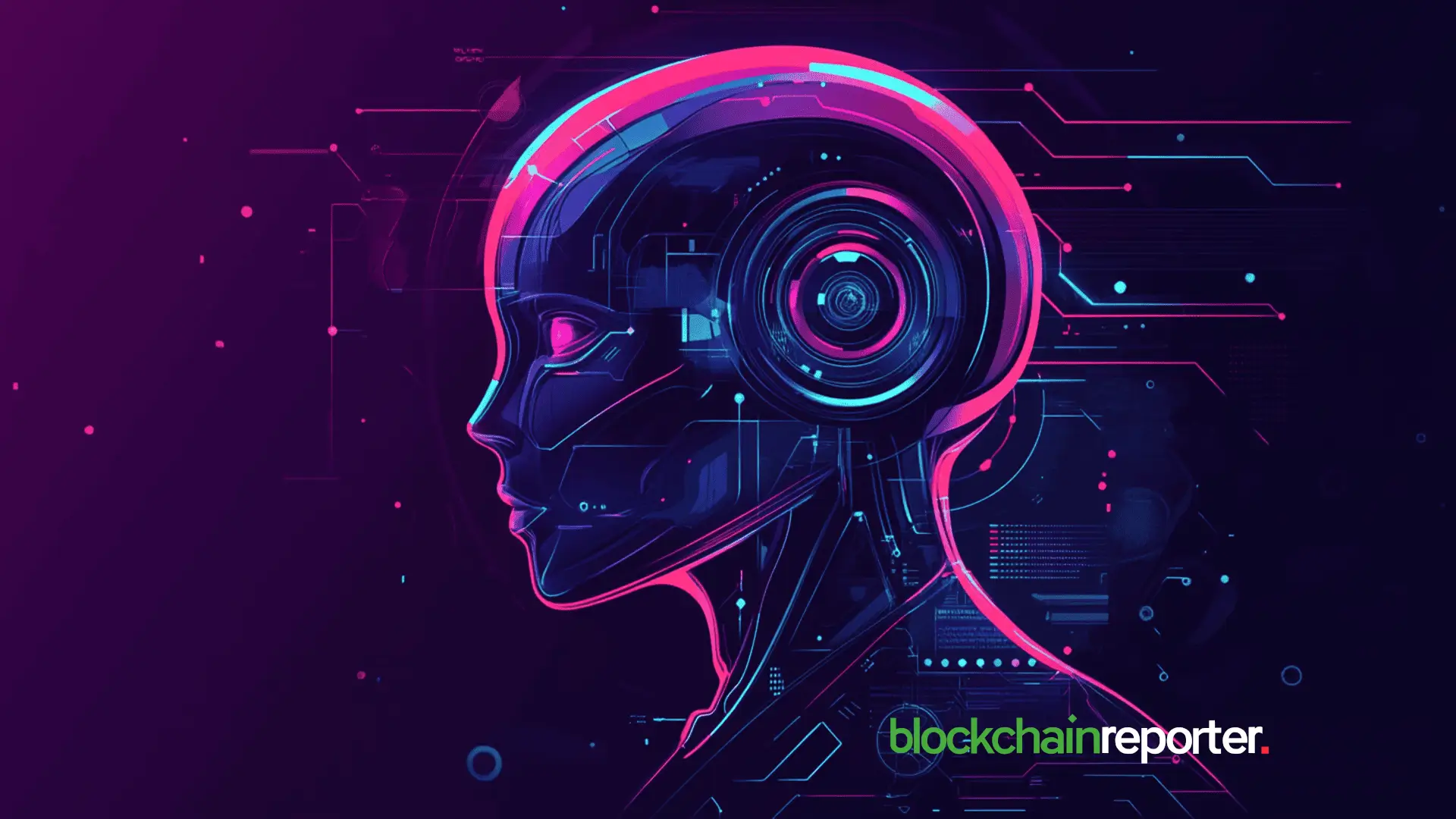
10 months ago
Phoenix and Tandem AI Join Forces to Revolutionize Drug Discovery
In a groundbreaking collaboration, Phoenix, a provider of DePIN AI infrastructure, has teamed up with Tandem AI, an innovative platform specializing in integrated drug discovery. This partnership will see Phoenix deploying TandemViz on its AI compute layer, SkyNet. TandemViz is designed to streamline the drug discovery process by integrating advanced physics-based and AI-driven software with tools that facilitate the management and analysis of wet lab results. Meanwhile, SkyNet serves as a decentralized infrastructure that supports the entire AI compute lifecycle, from training and inference to scaling and deploying AI models with ease.
The integration of AI into drug discovery is transforming the industry by addressing the challenges of time and cost associated with traditional methods. The vast chemical space, filled with millions of molecules, complicates drug development, making it a lengthy and expensive endeavor. AI drug discovery accelerates this process by identifying promising compounds and validating drug targets more efficiently. With the new partnership, a lightweight version of TandemViz will be accessible to smaller organizations and independent researchers, democratizing access to advanced AI drug discovery tools that were previously limited to large corporations with substantial resources.
This collaboration not only enhances the capabilities of both Phoenix and Tandem but also contributes to the growth of the decentralized science (DeSci) movement. By leveraging decentralized architectures, the partnership aims to provide greater value to the DeSci community, highlighting the potential of these technologies in advancing scientific research. With Tandem's impressive team of over 350 employees and a client base of more than 80 large pharmaceutical companies, this partnership is poised to make significant strides in the field of drug discovery and beyond.
Signup for latest DePIN news and updates